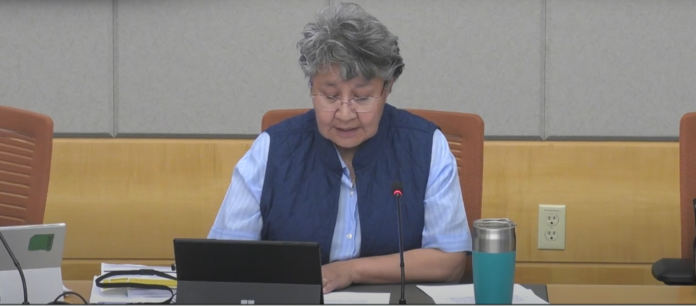After a thorough review, public engagement, and consultations with the RCMP, the Standing Committee on Social Development has suggested amendments to Missing Persons Bill 2. The proposed changes involve the removal of sections 7(4), (5), and 9(4) from the Missing Persons Act.
Committee staff noted that the amendments are being proposed to strike a balance between the RCMP’s need for swift action—taking into account the factors they are mandated to consider—and the protection of individuals who may be escaping violence.
In response to concerns about individuals fleeing intimate partner violence, Cpl. Matt Halstead, the media relations officer for the RCMP in the Northwest Territories, has stated that the RCMP has implemented internal policies to address this matter. If a person reported as missing is found, the RCMP does not disclose the individual’s location to the person who filed the report.
Superintendent Dyson Smith spoke to a legislative committee on the RCMP’s duty to locate individuals reported missing, irrespective of the complainant’s motives. The motives may remain obscure to the police until they have communicated with the missing individual. Superintendent Smith stressed the RCMP’s responsibility to ensure the safety and well-being of those reported missing to the committee.
On average, the Northwest Territories RCMP receives 30 missing person reports and 100 requests for wellbeing checks each month, with some wellbeing checks escalating into missing person cases. Most of these cases are resolved through standard investigative procedures, and those not solved in this manner are often resolved following media releases. These calls share the common thread that a friend or family member has not seen or heard from a person in some time. The concerns they express to the call takers are what determine the classification of the call.
In instances where the police cannot locate a person after these steps are taken, they could utilize the powers granted by the Missing Person Act to collect information and further their investigations. The frequency with which the RCMP will depend on the Act, once it is in effect, is yet to be determined and will be closely monitored by the RCMP.
The circumstances surrounding RCMP missing person files vary widely. Common situations include youths not returning to their residences, individuals with inadequate housing who lose contact with family in other communities due to inconsistent communication, and elders who haven’t received word from their adult children or grandchildren, among numerous other scenarios. Not all calls suggest the missing person is in danger, yet the RCMP proceeds to locate the individual, regardless of the circumstances noted in the missing person report.





